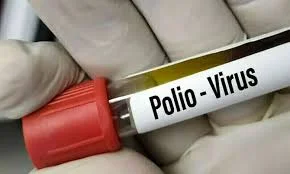ISLAMABAD, March 24: Environmental samples collected from 18 districts in Pakistan have tested positive for poliovirus, indicating the virus’s presence in these areas.
According to an official from the Regional Reference Laboratory for Polio Eradication at the National Institute of Health, sewage samples were taken from 22 districts.
The wild poliovirus type 1 (WPV1) has been detected in sewage samples from the following districts: Chaman, Islamabad, South Waziristan Lower, South Waziristan Upper, Lahore, D.G. Khan, Badin.
Moreover, Dadu, Hyderabad, Jacobabad, Kambar, Karachi East, Central, Keamari, and West, Shaheed Benazirabad, Sujawal, and Sukkur.
However, samples from Zhob, Sialkot, Multan, and Rahim Yar Khan came back negative for the virus.
Sewerage Samples
Sewage samples are a crucial tool for detecting the presence of the virus in a specific area.
Read More: Punjab Expands Polio Drive for Children Entering 13 Districts
These samples help assess whether polio vaccination campaigns are yielding the desired immunity levels among children.
The Pakistan Polio Eradication Programme has significantly expanded its environmental surveillance efforts, increasing the number of monitoring sites from 65 in 2021 to 127 by 2025.
This expansion helps ensure that no transmission goes unnoticed, even in remote areas.
In addition to environmental surveillance, the program is conducting extensive vaccination campaigns to protect children from paralytic polio and halt the spread of the virus.
Also Read: Poliovirus Detected in 26 Districts, Prompting Urgent Health Response
The next nationwide campaign will run from April 21 to 27, aiming to vaccinate 45.4 million children under the age of five across the country.
So far, Pakistan has reported six cases of poliovirus in the first three months of 2025, with cases recorded in Punjab, Sindh, and Khyber Pakhtunkhwa. This follows 74 cases reported in 2024, according to the polio program.
